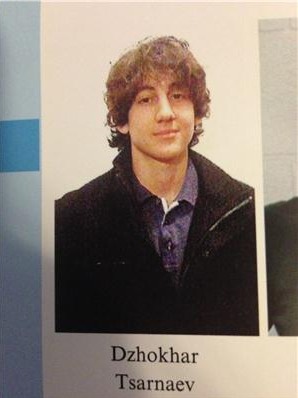Deadline Set for Death Penalty Recommendation Against Boston Marathon Bombing Suspect

Federal prosecutors told a court hearing Monday that they would go ahead with an October 31 deadline for recommending whether accused Boston Marathon bombing suspect Dzhokhar Tsarnaev should face the death penalty if convicted.
Representatives of US Attorney Carmen Ortiz rejected appeals from defense attorneys for a further delay in the process of determining whether Tsarnaev would face the death penalty. A previous deadline of July 26 was extended after the defense argued that prosecutors had failed to make full disclosure of documents.
Though there is no death penalty in the state of Massachusetts, where the trial is being held, Tsarnaev faces the possibility of capital charges under federal law. US Attorney General Eric Holder will make the final decision, once federal prosecutors submit their recommendation.
Tsarnaev was indicted on 45 state and federal charges pertaining to the events last April 15, which killed 3 and injured over 260 people. Seventeen of the 30 federal charges could carry the death penalty.
Defense attorneys have not yet been able to make a submission on the death penalty issue, and complained that the failure of the prosecution to submit documents had delayed their response.
“It’s pretty stunning to say they can make a decision based on what they know without any defense input,” stated Judy Clarke, one of the defendant’s representatives, adding that “[w]e’re really talking about a number of things here, including fairness.”
The new deadline for submission currently stands at October 24, with prosecuting attorney’s submitting their recommendation to Federal authorities by October 31, after which Holder will have 90 days to decide whether to seek capital punishment in the case.
The defense submitted a memo regarding the 2008 Criminal Justice Act (CJA), which lays out certain guidelines regarding disclosure of evidence for all parties when the death penalty is under discussion, and demanded that it be allowed to review all documents beforehand.
The prosecution rejected this, insisting that all decision-making powers lay in the hands of the Attorney General and that the law “confers no authority on this Court to set deadlines for internal Department of Justice deliberative procedures… A defendant has no rights under the CJA Guidelines because they are… nonbinding.”
The prosecution insisted further that the insertion of guidelines into the process represented a violation of the separation of powers, and that the six months which Tsarnaev had remained in custody represented a “reasonable time” for the defense to formulate a challenge to a possible death penalty decision.
That Holder now presides over the potential implementation of the death penalty without admitting a challenge by the defense represents an affront to basic democratic rights. It is typical of the US attorney general, who has openly defended President Obama’s supposed “right” to carry out unmanned drone strikes on the population, including inside the United States.
The potential execution of Tsarnaev is of a piece with the whitewash character of the official response to the April 15 bombing. Dead men tell no tales.
It has already been established that federal authorities had contact with the older of the Tsarnaev brothers, Tamerlan, who was killed in a shootout with police after the bombing. As early as 2011, Tamerlan had been placed under investigation by FBI officials due to memos sent by Russian intelligence agencies warning of the latter’s Islamic fundamentalist activities.
This investigation was later abandoned, with no “derogatory” findings being produced, and Tsarnaev, an ethnic Chechen by birth, was allowed to return to the Northern Caucasus region where he reportedly spent six months establishing contact with Islamic separatist movements.
Federal investigators and the media have virtually suppressed reports of the well-established links between the Tsarnaev’s uncle, Ruslan Tsarni, and the CIA. Tsarni worked closely with Graham Fuller, a high-ranking CIA veteran, to set up a support group for Chechen nationalist guerrillas, and was married to Fuller’s daughter.
Similarly, federal authorities have never provided a plausible explanation for the May 22 killing of Ibragim Todashev, an acquaintance of Tamerlan Tsarnaev, shot in his home in Florida while being questioned by FBI agents about his knowledge of the Boston events.

